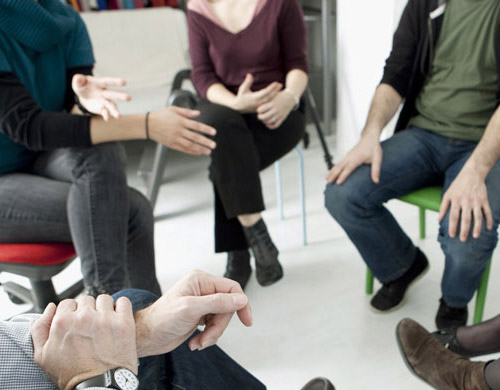Drug and alcohol addiction are difficult to address when they hurt you or someone close to you. Although addiction is a disease, it is treatable when evidence-based rehabilitation methods are adopted. Long term recovery from addiction is achievable.
Find out how integrated rehabilitation services can assist yourself or someone you love in beginning and maintaining a sober future.
What is Addiction Rehab (Rehabilitation)?
When we talk about ‘rehab’ for addiction, it encompasses therapeutic interventions and medical treatments needed to address dependencies on substances such as benzodiazepines and illegal drugs including heroin.
Rehab provides better chances of long term recovery success if it is customized to the individual needs of the client and incorporates medically-managed detoxification, inpatient or outpatient programs, and relapse prevention techniques also known as aftercare.

Facts & Statistics about Addiction in Irvine
Prevalence of Substance Use Disorder, by Drug Type
(IN THOUSANDS)
- 2,7578.5%Any Substance
- 2,0886.4%Alcohol
- 1,0683.3%Ilicit Drugs
- 2060.6%Pain Medication
Drug- and Alcohol-Induced Deaths by Age Group, California, 2016
- Alcohol-Induced
- Drug-Induced
- 18 to 250.5
- 9.6
- 26 to 354.3
- 13.9
- 36 to 6424.2
- 22.9
- 65+23.7
- 9.4
Drug Use, by Selected Type and Age Group California, 2015 to 2016
- 12 to 17
- 18 to 25
- 26+
- Marijuana*13.2%
- 34.0%
- 13.5%
- Misuse of Pain Medications3.5%
- 8.0%
- 4.3%
- Cocaine0.8%
- 7.2%
- 1.8%
- Heroin0%
- 0.4%
- 0.2%
What are the treatment options available in Irvine?
A consolidated treatment approach offers a successful way to tackle the root causes of substance and alcohol use disorders. Through learning natural coping mechanisms you can address the causes of substance abuse while addressing the main symptoms of addiction.
Private Residential Programs
Residential rehab programs require you to stay at the rehab facility and have your treatments on-site. The key benefit is the ability to have holistic support and treatment all day. By moving out of your home and into a treatment facility, you will protect yourself from any potential triggers that are partly responsible for you developing a substance addiction.

You will be less susceptible to relapse when you finish your rehab program in a secure facility where the environment is supportive. If you suffer with co-occurring illnesses, dual diagnosis or a strong substances including alcohol, a residential program is ideally suited to meet your rehabilitation needs.
You can begin the initial steps to sobriety by taking part in an inpatient program, but to overcome the difficulty of the early stages of addiction recovery, you must work at it constantly. When you have finished your residential addiction treatment program you must become more independent and set goals for your new life.
Do You Need Help?
Start your recovery today.

Sober Living Programs
You can build the skills required to live substance-free by taking part in a sober living program, which will guide you through the early stages of recovery. This is done by:
- A house manager checking in on you regularly
- Setting the boundaries for positive behavior in recovery
- Getting guidance and companionship from other people who have similar
Outpatient Programs
Outpatient programs are easy to adjust to so that you can continue any work and family commitments and still receive treatments, by attending the rehab facility in your own time.
Outpatient programs typically offer:
- Education on misusing substances
- Group therapy and individual therapy as drivers for addiction recovery – You must be enrolled in an outpatient program for at least three months, and may continue the program for longer than a year if required.
Detox Only Programs
The early phase of any treatment program is detoxification, which removes all traces of substances from your system and tackles your physical dependency on it. During the detox phase you will experience withdrawal symptoms as your body begins to function independently of the substance it was dependent on.
After this you will continue forward in your recovery journey, as you come to terms with the underlying causes for your addiction, to help you understand how to avoid it in the early stages of recovery and beyond. Given that most substances result in withdrawal, you may develop withdrawal symptoms and cravings for a while after your detox program is complete.
Your odds of relapse can be mitigated as you develop the important skills necessary to cope with your new life.
Paying for Private Treatment
The cost of private rehab may be claimed back through your insurance policy or funded with your own money. Many insurance providers will contribute to some of the costs of treatment, including a drug or alcohol detox, rehab therapy, and any aftercare provisions you may benefit from. The amount covered for your treatment will depend on your provider and policy.
Before you take part in a rehab program, you should always check how much cover you have. To find out what you could be entitled to, visit our Verify Your Insurance page.
If you opt out of cover from your insurance provider, you will need to pay the cost of treatment yourself. It may be possible to opt in to a payment plan if the total cost is a barrier to you receiving treatment.
State Funded Programs
State-funded rehabilitation programs are beneficial for those who are battling with alcohol or substance addictions and who may not have the financial means to fund private rehab.
By using funds allocated from Medicaid and state/federal budgets, these sorts of programs can subsidize your recovery including:
- Medically-managed detoxes
- Rehabilitation services and aftercare support
State-funded treatment programs are accessible to those who have no private health insurance or who live in poorer households. During the application process you will need:
- You live where you say you do
- Any income or earnings
- Evidence about your drug or alcohol misuse
- Living legally in the US
Visit https://www.grants.gov/ for further details about the application process.
Click on this pdf to locate contact details of your state agency.

The following state-funded addiction rehab programs are available in Irvine:
LEAD Recovery Center
1516 Brookhollow Drive, Suite A , Santa Ana, CA 92705
800-380-0012
https://www.leadrecoverycenter.com/Newport Academy
3189 Pullman Street, Costa Mesa, CA 92626
877-820-6371
https://www.newportacademy.com/Korean Community Services Inc KC Services
19742 MacArthur Avenue, Suite 245 , Irvine, CA 92612
949-654-9163
https://www.kcservices.org/
Maintaining Addiction Recovery in Irvine
The early stages of your recovery can be challenging when you return to home life after leaving rehab. At rehab you were in a professionally supported, safe environment.
When you depart rehab there will be some new challenges that you will have to learn to cope with. If you experienced a severe dependency and have not developed a social structure to return to when you leave rehab, you may find long term recovery more of a challenge. Relapse is a possibility without the right aftercare and support groups to help you navigate your new life.
The following AA/NA meetings are available in Irvine:
NA Meetings – Church of Palm Springs – Cathedral City
Open, Basic Text, It Works How and Why Study and Speaker:
33055 Cathedral Canyon Dr., Cathedral City, CA 9223
Sunday: 5:00 PM
https://www.na.org/AA - Pamphlet Study Group
Closed: 7 Vanderbilt, Irvine, CA, 92602
Tuesday: 6:00 pm – 7:00 pm
https://alcoholicsanonymous.com/AA - Step Study Irvine
Open: 5101 Alton Parkway, Irvine, CA, 92602
Saturday: 9:15 am – 10:15 am
https://alcoholicsanonymous.com/
Aftercare & Alumni Programs
By participating in an aftercare program you get extended rehab support when you go home. As many as 60% of individuals in recovery relapse due to unpredictable challenges in life, taking part in relapse prevention and after services can boost your chance of avoiding these pitfalls.
When your program is close to finishing, we will discuss the therapies and counseling that is helpful for your long-term recovery and the appropriate aftercare provisions will be designed to assist you. One such benefit of finishing rehab is entering an alumni community program, which allows you to liaise with former clients and staff as a community based recovery community.
You can come to special events, join groups and get advice and encouragement from other former clients who are also in active recovery. This gives you an ideal opportunity to reciprocate and help other members.

Support Groups (Fellowship Meetings)
Support groups really are important to long-term recovery as they focus on the importance of social structures in addiction recovery. The 12-step model is maintained by support groups like Narcotics Anonymous and Alcoholics Anonymous which have continued supporting individuals in recovery by holding group meetings.
During meetings, other members will share their experiences and learn important insights from others. By building friendships and staying committed to the 12-steps, those in recovery will feel able to take responsibility for their actions and protect those around them.
Support for Families & Children Affected by Addiction
The entire family unit is hurt negatively by addiction in the home, some more than others. The person with the dependency needs help, but other members of the household need support and guidance too.
Participating in a family support group can help you to manage the situation better, and also help you to provide greater support to those struggling with addiction. Some useful support groups for families include:
- Parents of Addicted Loved Ones
- SMART Recovery Family & Friends
- NAMI Family Support Groups
- Al-Anon
- Families Anonymous
- Alateen
- Nar-Anon










